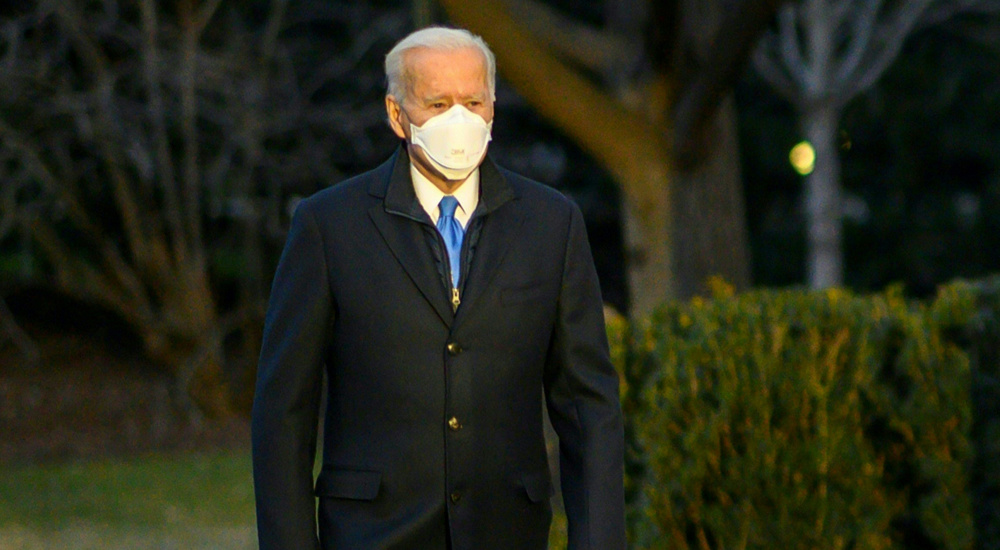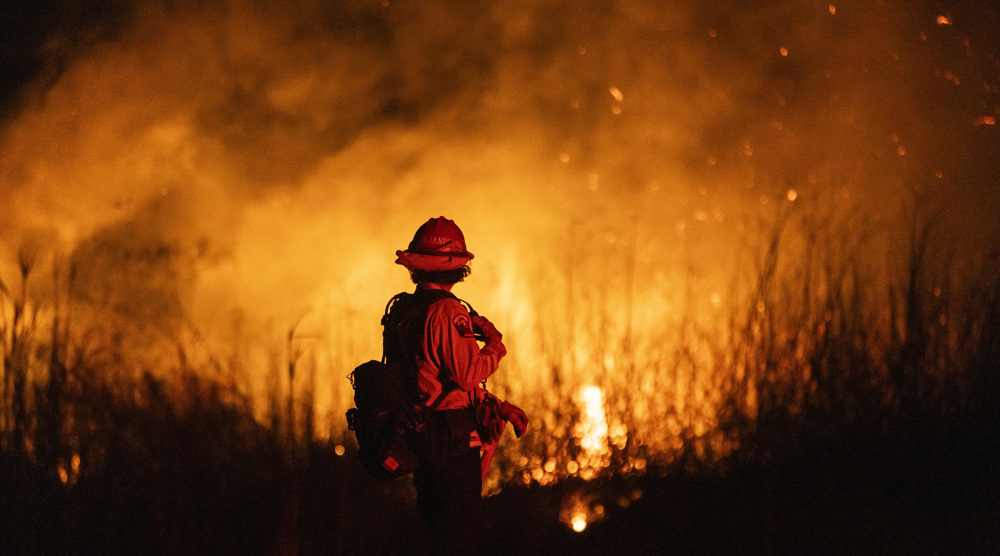Biden admin. reverses two Trump-era measures against Iran, offers to rejoin JCPOA talks
The administration of US President Joe Biden has reversed two measures adopted by his predecessor Donald Trump against Iran and offered to rejoin negotiations with the Islamic Republic and other parties to a nuclear agreement Washington left over two years ago, in the first apparent break with the previous administration’s stance against the deal.
In a letter to the UN Security Council on behalf of Biden, acting US Ambassador Richard Mills said the United States "hereby withdraws" three letters from the Trump administration culminating in its claim on September 19 that the US had reimposed UN sanctions on the Islamic Republic.
In the letter obtained by The Associated Press, Mills said that sanctions measures terminated in the 2015 council resolution endorsing the nuclear deal - known as the Joint Comprehensive Plan of Action (JCPOA) - with six major powers, "remain terminated."
In May 2018, Trump unilaterally pulled his country out of the JCPOA and re-imposed the sanctions that had been lifted under the UN-endorsed deal.
A year after the US’s withdrawal, the Islamic Republic began a set of countermeasures that saw it suspending its commitment to the JCPOA gradually and through many steps as the allies would sustain their non-commitment to the deal.
The decision by the Trump administration to invoke a provision in the 2015 council resolution allowing the “snapback” of sanctions because Iran was in “significant non-performance” with its obligations under the accord was ignored by the rest of the Security Council and the world.
The overwhelming majority of members in the 15-nation council described Trump’s action illegal, arguing the US was no longer a member of the JCPOA.
UN Secretary-General Antonio Guterres said the United Nations would not back re-imposing sanctions on Iran as Washington was demanding until he got a green light from the Security Council.
In August, Iran's mission to the UN said the overwhelming consensus among members of the Security Council against the US’s push to reinstate all anti-Iran UN sanctions proved Washington’s isolation once again.
Meanwhile, Ned Price, a spokesman for the State Department, said Thursday the Biden administration was willing to meet with Iranian officials and other world powers involved in negotiating the nuclear deal.
Price said Washington "would accept an invitation" from the European Union's top diplomat to attend a meeting aimed "to discuss a diplomatic way forward on Iran’s nuclear program."
So far, no meeting has been arranged yet, but the EU's high commissioner, Josep Borrell, has expressed willingness to invite the parties to engage in talks.
A State Department official, briefing reporters on the condition of anonymity, said on Thursday Washington would be represented at the meeting by Biden's special envoy for Iran, Rob Malley.
Meanwhile, Republicans, who have pressed the Biden administration to keep the US sanctions on Iran, were quick to criticize Thursday's announcement.
"It is concerning the Biden administration is already making concessions in an apparent attempt to re-enter the flawed Iran deal," said Rep. Michael McCaul, the top Republican on the House Foreign Affairs Committee.
Shortly before Price's statement, Iranian Foreign Minister Mohammad Javad Zarif called on European leaders to push the US to lift its sanctions.
"Instead of sophistry & putting onus on Iran," Zarif wrote on Twitter, the EU must "demand an end to Trump's legacy of #EconomicTerrorism against Iran."
" ... Remove the cause if you fear the effect," he added. "We'll follow ACTION w/ action."
US eases restrictions on movement of Iranian diplomats in New York
The United States says it has lifted travel restrictions on Iranian diplomats accredited to the United Nations, headquartered in New York.
Trump, in 2019, banned Iranian diplomats from all but a few blocks around the UN and their mission as part of his so-called campaign of maximum pressure on Iran.
However, a State Department official told reporters on Thursday, Washington was seeking to “remove unnecessary obstacles to multilateral diplomacy by changing restrictions on domestic travel. These were extremely restrictive.”
Zarif said he was even prohibited from visiting a colleague in a New York hospital during a UN visit.
The US State Department, nonetheless, said the restrictions applied to countries with poor relations with the United States, such as North Korea, would still affect Iranian diplomats. Based on such restrictions, permission is needed for diplomats from those countries if they want to go to- beyond a 40 kilometre radius of Midtown Manhattan.
'Gaza has won': Social media users react to ceasefire with mix of relief, joy
Iran seeks South Korea’s assistance for AI, fiber-optic projects
VIDEO | Iran's 'Eqtedar' (Power) maneuver
Israel hits HTS military target in Syria for 1st time since fall of Assad
VIDEO | Press TV's news headlines
Israel has slaughtered 13,000 students in Gaza, West Bank
VIDEO | More Zionist than Zionists: Biden’s legacy to be defined by Gaza genocide
Hamas confirms handing approval of Gaza ceasefire deal to mediators
















 This makes it easy to access the Press TV website
This makes it easy to access the Press TV website